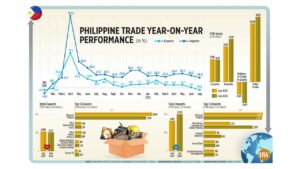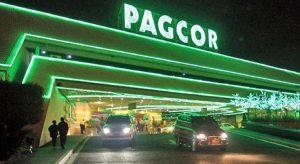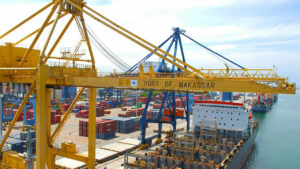Motoring and the judiciary

The Supreme Court has ruled that Metro Manila cities cannot cite motorists for traffic violations using their own “tickets,” and that they cannot confiscate driver’s licenses, unless they were “authorized” to do so by the Metro Manila Development Authority (MMDA). Also, local governments must use only the MMDA’s single-ticketing system for citing traffic violations.
The court decision was reportedly dated July 2023, but was released only recently. The court prohibited traffic enforcers of local government units (LGUs) in Metro Manila from issuing local violation receipts and confiscating licenses, claiming that under the MMDA charter, Republic Act 7924, the agency has exclusive power to do this.
In this line, LGUs must follow the MMDA’s Joint Metro Traffic Circular No. 12-01 issued in 2012, which details the uniform ticketing system. The MMDA intended the use of a unified ordinance violation receipt that would be recognized by the MMDA, the Land Transportation Office (LTO), and all Metro Manila LGUs as a valid traffic citation receipt and temporary driver’s license.
The MMDA circular was issued in 2012, but it took the court system 12 years to resolve the matter with finality. In a way, it has been overtaken by events as only a few cities continue to issue their own traffic tickets. People who petitioned against the uniform ticketing system have probably lost interest in the matter as well.
And this is where Filipinos’ tendency to be litigious creates complications for policymakers and regulators. Instead of moving forward on several things, presumably for the public’s benefit, government agencies take pause and step backward because of some perceived slight against a party, a perceived violation of law, or perhaps a misunderstanding in legal interpretation.
Take the case of the No Contact Apprehension Policy or NCAP, where motorists are cited for traffic violations through the use mainly of technology like traffic cameras and monitoring stations. The NCAP has been in use in other parts of the world for many years now. Over here, however, questions arose whether no-contact apprehension is “constitutional.”
This was after hundreds, if not thousands, of motorists all over Metro Manila were “apprehended” by computers and cameras and subsequently fined thousands of pesos for traffic violations. Mounting complaints led to a court case, and the use of the NCAP by the MMDA and LGUs has been on hold since 2022 because of a restraining order from the Supreme Court.
And then there is the LTO problem with its license card supplier. A restraining order in 2023 stopped the LTO from awarding the license card supply contract. Meantime, the LTO has not been issuing plastic license cards and instead opted for digital licenses. The funny part, in my case, my license card was “signed” by one LTO chief but the digital version of the same was signed by his successor.
Also last year, the Supreme Court dismissed the petitions filed by drivers and transport groups questioning the constitutionality and fairness of higher fines set for traffic law violations. That case took nine years to resolve, with the court eventually ruling that higher fines were necessary to promote public safety and welfare.
It also took the court 12 years to finally resolve the legal question on the use of a single-ticketing system. One can only guess how long it will take the judiciary to finally resolve the legal questions on the NCAP and license cards. The issue of license plates was with the courts for some time as well. Prior to this, years back, the LTO use of RFIDs went to court, too.
And then there are the looming issues involving motorcycle taxis and electric vehicles running on two and three wheels. As Congress moves to deliberate on a proposed law on two-wheel taxis, expect legal questions to arise. Already, UV Express operators have gone to court questioning the legality of motorcycle taxis. Expect legal questions on two-wheel and three-wheel electric vehicles as well.
From law to regulations, and then to implementation, it can take years if not over a decade before something can be executed. The MMDA’s unified ticketing system policy dated back to 2012 but the legal issues hounding it were resolved only this week. The issue regarding higher fines took nine years to resolve. The NCAP issue dates back to 2022, while the license card issue dates back to last year. Both are still pending in court.
The public, by now, cannot help but be disappointed by how cumbersome government works. And for some reason, the LTO continues to be party to many of these lawsuits. Perhaps this is unsurprising considering that other than the shortage of license cards and license plates, we were also reliably informed that many new car buyers now wait for as long as two months for the release of their new car registration.
As I have written in a previous column, people, in general, are willing to pay for good service. What is important to them is that service is delivered efficiently, whether water or electricity service, internet, public transportation and mass transit, public housing, permitting and inspection, etc. Obviously, there is always a price to pay for efficiency.
The issue is that service efficiency, particularly in government, is always cyclical and never consistent. In some way, the cycles follow the changes in administration. Take the case of driving licenses, registrations, and license plates. Four administrations ago, we seemed to have resolved supply issues, with the public generally satisfied with the service. Since then, it has been a case of catch-up.
The thing is, while concerned agencies can find ways to be more efficient and to resolve many pending issues, this will be for naught if many policy changes or initiatives involving land transportation will just end up in court and wait for legal resolution for who knows how long. In a way, one cannot help but suspect that the judiciary is being used primarily to delay rather than resolve issues.
In this line, perhaps it is also time that we consider establishing traffic courts. Now that a unified ticketing system has been upheld, and higher fines have been validated, perhaps adjudication of violations can also be assigned to specially designated courts that deal mainly with traffic issues. This is in anticipation of more lawsuits in case the NCAP gets the judiciary’s nod as well.
Marvin Tort is a former managing editor of BusinessWorld, and a former chairman of the Philippine Press Council




